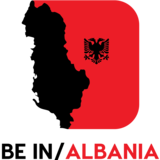Economy

Albania’s economic freedom score is 64.5, making its economy the 65th freest in the 2018 Index. Its overall score has increased by 0.1 point, with a dramatic improvement in fiscal health offsetting lower scores for the judicial effectiveness and tax burden indicators and a sharp decline in business freedom. Albania is ranked 32nd among 44 countries in the Europe region, and its overall score is below the regional average but above the world average.
Albania’s transition to a more open and flexible economic system has been facilitated by a decade of substantial restructuring. Progress in income growth and poverty reduction has been considerable. A competitive trade regime supported by a relatively efficient regulatory framework has encouraged the development of a growing entrepreneurial sector. Despite this progress, however, more reforms are needed, especially in the area of rule of law, to encourage the growth of economic freedom and ensure continued vibrant economic development.
The Balkan nation of Albania transitioned from Communist rule to Europe’s newest multiparty democracy in 1991. The political situation stabilized after state-sanctioned pyramid schemes collapsed in 1997. Edi Rama became prime minister in 2013, and his Socialist Party won an outright parliamentary majority in June 2017. Albania secured European Union candidacy status in 2014, and EU accession is a major goal of the new government. The economy is dominated by agriculture, which employs about half of the workforce, but services and tourism are increasingly important. The country remains one of the poorest in Europe, with sluggish economic growth hindered by a large informal economy and weak energy and transportation infrastructure. High unemployment and a lack of opportunity spur substantial emigration.
